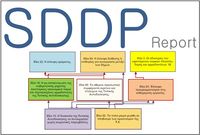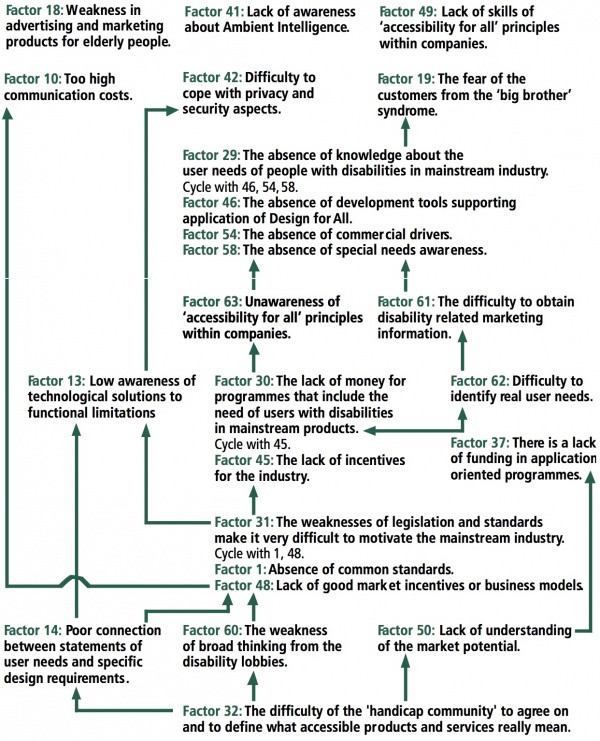SDDP COST 219ter Obstacles to practical broadband applications
|
Executive Summary
This report has been developed in the context of the COST 219ter project. The results of two workshops are summarized below, that were held in Ayia Napa, Cyprus and in Seville, Spain. The purpose of the workshops was to develop a shared understanding regarding the obstacles that prevent the exploitation of broadband technologies and to build commitment within the COST 219ter community to an action agenda for collaboratively addressing the problem. The workshops were organized using the “Interactive Management” methodology.
The Triggering Question (TQ) was
What obstacles prevent practical broadband applications from being produced and exploited?
In response to the TQ, the 26 participants came up with 64 mechanisms, which were categorized in 10 clusters. Following the voting process, 24 ideas received four or more votes and were structured to create the influence MAP shown below.
According to the participants of this workshop, the characteristics appear to be the most influential were:
- Factor #32: The difficulty of the 'handicap' community to agree on and to define what accessible products
- Factor #14: Poor connection between statements of user needs and specific design requirements
- Factor #60: The weakness of broad thinking from the disability lobbies
- Factor #50: Lack of understanding of the marketing potential
- Factor #31: The weakness of legislation and standards make it very difficult to motivate the mainstream industry
- Factor #1: Absence of common standards
- Factor #48: Lack of good market incentives or business models
The participants had time to discuss and reflect on the influence map and in general agreed that the arrows in the map made sense to them. In sum, the participants reported their satisfaction that their voices have been heard and documented and communicated their expectations for follow-up activities to address the diagnosis of their needs.
The workshop was facilitated by Yiannis Laouris (CNTI), Marios Michaelides.

